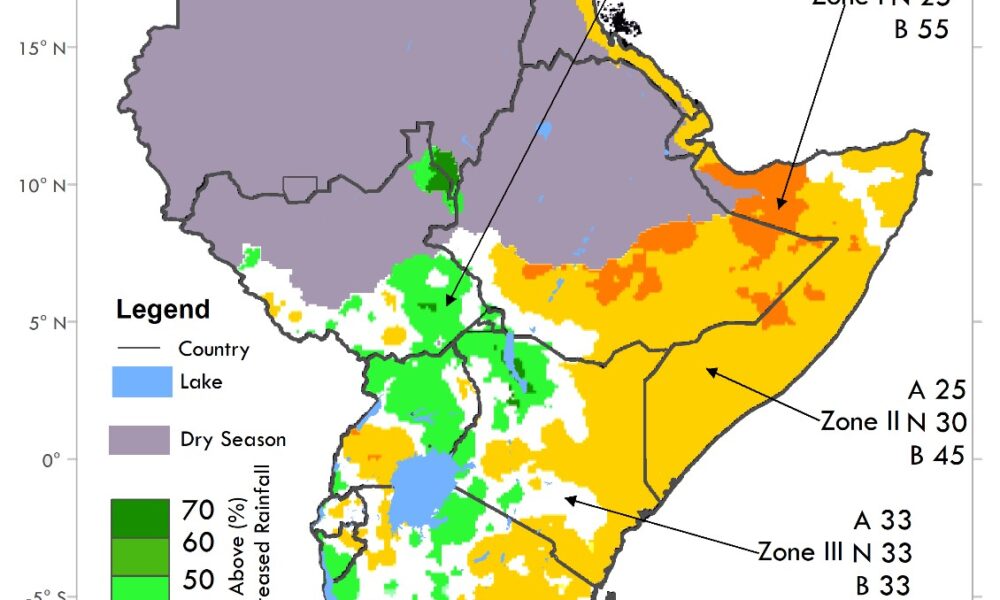By Dogga Luwo Godo
IGAD Climate Application and Prediction Centre (ICPAC) has forecasted that from October to December 2024, Eastern and Central Equatoria are poised to receive above-normal rainfall.
This period is critical for the equatorial regions of the Greater Horn of Africa (GHA), marking a significant seasonal transition.
The latest forecast indicates that while the western parts of the region, including southeastern South Sudan, northern Uganda, and parts of western and northwestern Kenya, are likely to experience increased rainfall, eastern regions may face drier-than-normal conditions.
Areas such as southern Ethiopia, much of Somalia, and eastern Kenya are expected to see below-normal rainfall, with southern Ethiopia and central-northern Somalia particularly affected.
An early to normal onset of rains is anticipated in much of western GHA, including southwestern Ethiopia, Uganda, and western Tanzania.
Equally, a delayed onset is expected in parts of southern Somalia, eastern Kenya, and southern Ethiopia.
The forecast also predicts warmer-than-average surface temperatures across the GHA, especially in eastern Tanzania, Kenya, and parts of Ethiopia and Somalia.
In contrast, cooler temperatures may prevail in cross-border areas of Uganda, South Sudan, and localized regions in northern Tanzania and western Sudan.
H.E. Dr. Workneh Gebeyehu, Executive Secretary of IGAD, emphasized the urgency of coordinated action in response to these climatic challenges.
“Food insecurity continues to persist in the IGAD region, with 56.5 million people currently facing acute shortages. Disease outbreaks, worsened by severe climate events and conflicts, are adding to the strain,” he said.
“The climate outlook for the October to December 2024 season shared today underscores the urgent need for coordinated preparedness efforts by national governments, development agencies, and humanitarian partners. Together, we must prioritize early action for building resilient systems capable of addressing these evolving challenges.”
Dr. Eng. Festus K. Ng’eno, Principal Secretary in the State Department for Environment, highlighted the importance of robust early warning systems.
“The effectiveness of these systems depends on our collective action. We need to invest in the development and maintenance of these systems,” stressing the need for accessible warnings that reach vulnerable communities.
“And we need to educate people about the risks of climate change and how to respond to early warnings.”
Dr. Abdi Fidar, Officer-in-Charge at ICPAC, added that seasonal forecasts are vital for informed decision-making and regional planning.
“The predicted drier conditions in the eastern Horn of Africa and ongoing food insecurity require timely and coordinated responses from all stakeholders,” he said.
As the region prepares for these impactful changes, the focus must remain on building resilient systems capable of addressing the evolving climate challenges ahead.




